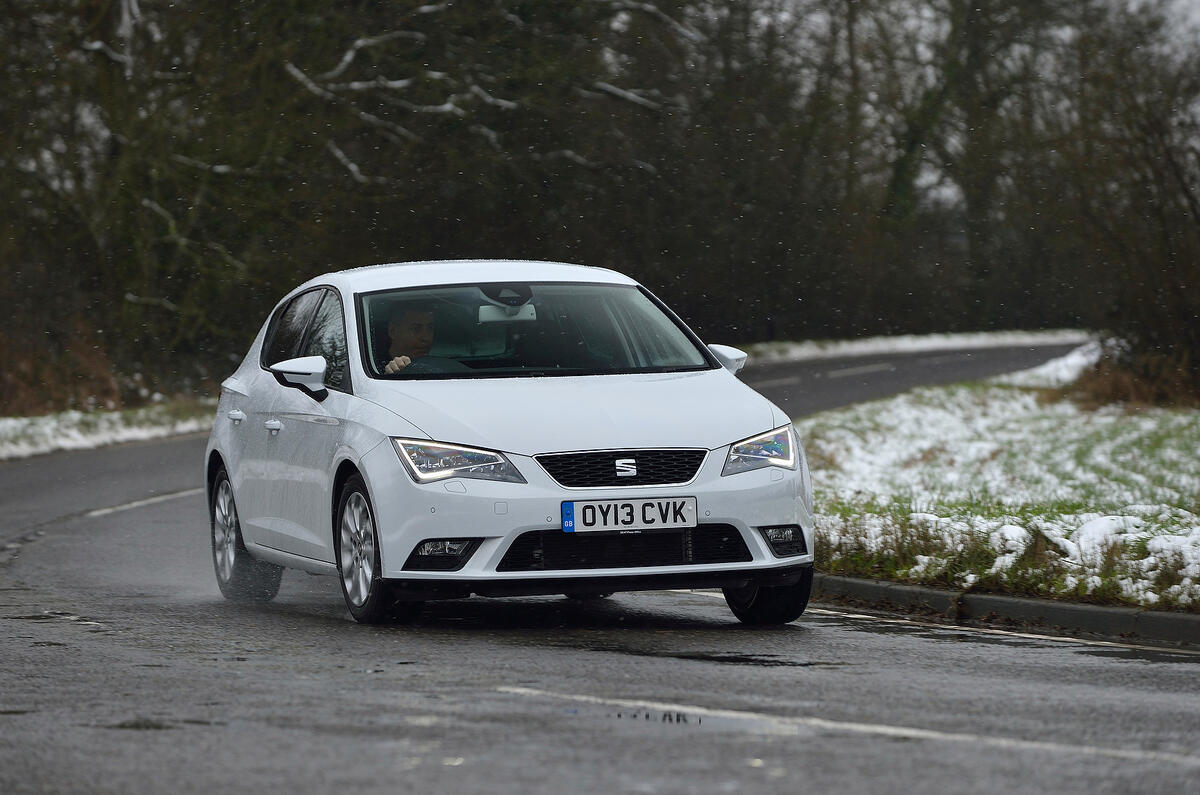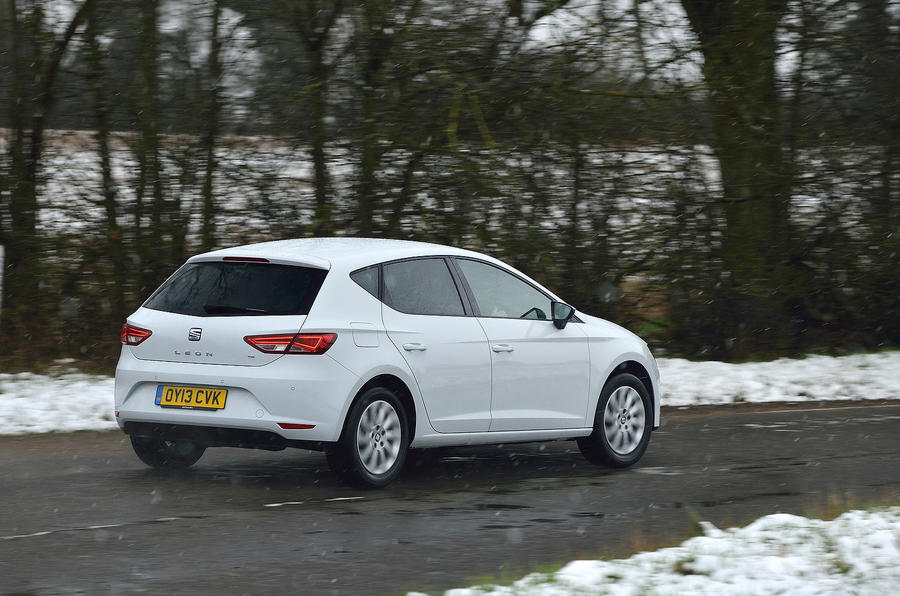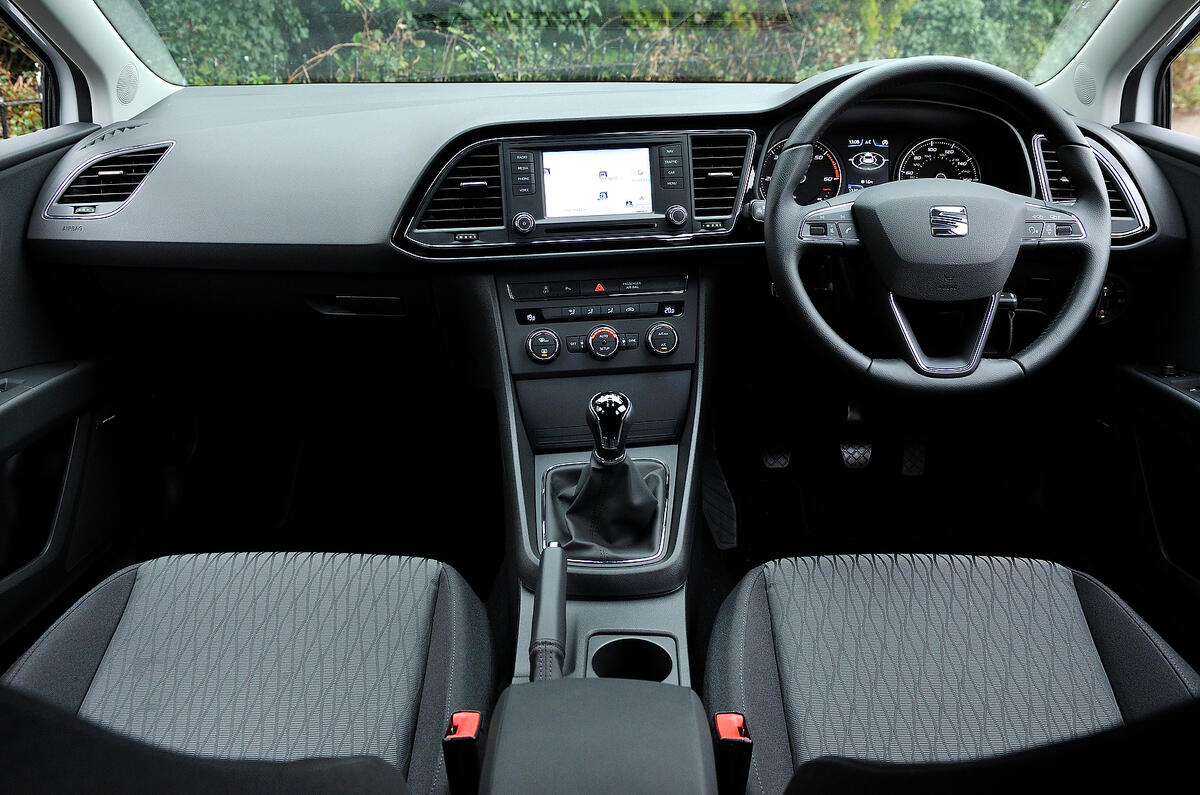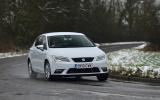What is it?
A key version of the new Seat Leon. The Spanish car-maker expects this model – specific to engine, transmission and even trim level – to account for more than 30 per cent of UK sales; twice as many as the next most popular model. Which also happens to be powered by its 1.6-litre, 104bhp turbodiesel engine, as it happens.
That's because this mid-range, low-emissions model will be the big fleet seller. Like every other Leon SE, it comes with air conditioning, Bluetooth, 16in alloys, cornering fog lamps, cruise control, electric windows all-round and leather-covered steering wheel with audio controls – a healthy offering, in other words.
It'll sell on the strength of style and compactness, as much as anything. The new Seat Leon is more than 50mm shorter than the car it replaces, but has a wheelbase that's 50mm longer. Boot space and passenger accommodation are improved, says Seat, but the Leon remains a relatively short, tightly-packaged kind of hatchback, and a particularly handsome one too. This is emphatically not a sensible utility car like its brother Octavia; far from it.
What's it like?
Decent in lots of ways – on material quality, fuel-efficiency, interior roominess and value for money. But dynamically this car doesn't represent either the Leon, or the Seat brand, quite as well as other models in the range.
Like every other Seat Leon with 150bhp or less, it uses the MQB platform's cheaper beam-axle rear suspension – but that's an item of information that needn't concern owners about as much as the fact that there is foam in the seats, or a turbocharger attached to the engine. It's a perfectly appropriate technology for the car; but in this instance, it's just not applied as well as it might be.
If you didn't already know that this car just squeezes in below the 99g/km emissions threshold, you could guess from the driving experience. Though it's a marginally more refined and flexible performer than Seat's last sub-100g Leon, it still feels like an economy car. The intermediate gear ratios feel tall and quite distantly spaced from each other, and 184lb ft of torque isn't enough to haul through them in anything much beyond ponderous pace.
The equivalent Honda Civic has a six-speed 'box and 221lb ft, and the difference that makes on the road is plain. By comparison, the Seat seems not just slow, but quite one-dimensional.
And as well as a mediocre engine, in an attempt to inject its familiar sporting ethos, Seat has opted for high spring rates that don't work very harmoniously with the not-so-taut damping, and tyres that don't lend a great deal of grip, directional response or steering feel to the handling. The car corners without much roll, as you'd expect it to, but fidgets a little over a changing surface, and fails to involve very much via its direct (but quite light) steering.
Should I buy one?
If you're sold on the styling or generous spec level, perhaps. There's little that's seriously wrong with this car, and it's not afflicted by some of the shortcomings of the old Seat Leon – poor practicality and a lack of cabin material variety being just a couple of 'em.
But the bottom line is that other new Seat Leons ride and handle noticeably better. Meanwhile, if you do need a sub-100g option, there are more practical options, as well as more dynamically rounded and coherent ones. There's also a proper Ecomotive model coming later in 2013 that'll take the car's fuel efficiency to new heights.



















Join the debate
Add your comment
Did I test drive the wrong car. Very refined is the only word
Dashboard design interesting
I find the dashboard design the most interesting feature on the new Seat Leon. That kind of sums it up for me really. I'd buy a Seat just to be different, but the dealer is over twice as far away than the VW/Skoda one. I'm not bothered about being different that much... Is this the wrong attitude to take for a reader of Autocar? I'm not sure. Probably, yes.
A better looking car than the Mk2...
...but I can't help feeling that SEAT have been somewhat hamstrung by the VAG group. After the unexpected success of the Mk1 Leon, and the epic Cupra R 225 (possibly the best car to share the Golf IV platform), the Mk2 Leon was a huge disappointment and one that forced me to rethink and change brands. The dash plastics were horrific, and the car looked more MPV that hatchback. The SEAT Sport era (and brand values) seemed to be over, and the brand fell tidily back into the hierachy of the VAG group with seemingly most of it's Spanish flair quashed.
The Mk3 looks a return to some form design wise (with the exception of the rear door handles and those pretty poor seats). Personally if you're in the market for one of these, I'd be waiting for the Ecomotive option as it's likely to have better options and a deal package attached to it.